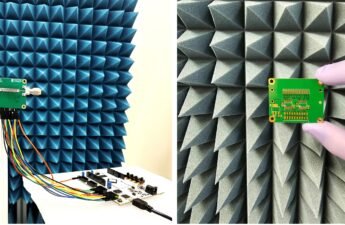I will give an introduction to VoIP, which means Voice over IP. As the name tells it serves to transmit voice via internet by IP.
Why VoIP?
The great VoIP’s advantage is the possibility to reduce phone’s bill making phone calls by internet. Because internet connections aren’t charged with time and distance. VoIP didn’t totally substitute the phone yet because you can’t make call in certain services like emergency calls, per example. But the trend is to develop VoIP services to emergency calls and replace completely the circuit switch phone network. Personally I think I shouldn’t stay totally VoIP dependent because it will be subjected to cyber attacks.
How it works?
To transmit voice by internet, the voice signal must be digitalized. Analog voice signals go to a codec, where it is sampled, divided in packages and compressed.


The data package receive identification headers: IP, UDP (User Datagram Protocol) and RTP (Real Time Protocol).

Arriving in the receiver, the headers are ignored, the receiver’s codec uncompress the signal, reconvert to analog to be reproduced. Codecs use ITU (International Telecommunication Union) standard.
In the VoIP system, it is possible to make a call from PC to PC, PC to phone and phone to phone. This is the VoIP architecture.

IPPBX switch calls between VoIP users in local lines and between VoIP and conventional phone. PSTN is abbreviation from Public Switched Telephone Network. The VoIP gateway is to convert and compress audio signal.
How to use?
There are 3 ways to use VoIP, you can simply install a software in your PC, phone or tablet, purchase a phone with VoIP.

Or have an ATA (Analog Telephone Adapter) to your common phone make VoIP calls.





What are the primary advantages of VoIP technology, particularly in terms of reducing phone bills and utilizing internet connections? Despite these advantages, why hasn’t VoIP completely replaced traditional phone services yet? How do you see the future of VoIP evolving, especially in relation to handling emergency calls and replacing circuit switch phone networks? Lastly, what concerns do you have about relying solely on VoIP, particularly in terms of cybersecurity threats?
telkom university